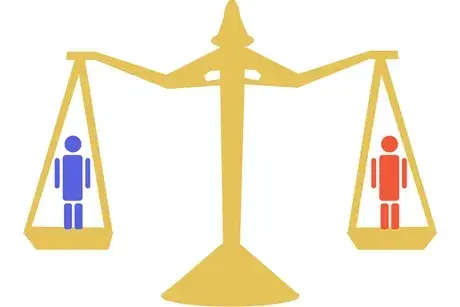Grappling with Laws on Campus Sexual Misconduct
Experts will convene at RWU Law to discuss the reach and impact of Title IX in these uncertain times.

One of the most controversial topics raging on college campuses today concerns how to properly handle allegations of sexual misconduct.
For decades, such matters have been governed by Title IX of the Education Amendments of 1972. But opposing positions on the law taken by recent U.S. presidential administrations– playing out amid the seismic societal shifts of the #MeToo movement – have contributed to an atmosphere of uncertainty surrounding the statute’s current reach, application and impact.
Next Friday, November 15, three panels of national experts will convene at Roger Williams University School of Law in Bristol, R.I., to grapple with these issues in an all-day symposium titled “Adjudicating Sexual Misconduct on Campus: Title IX and Due Process in Uncertain Times,” hosted by the Roger Williams University Law Review.
“Title IX has become a powerful, and often controversial, tool for promoting gender equality in colleges and universities,” explained RWU Law 3L Caitlyn Horbert, editor-in-chief of the Law Review. “But the statute has also yielded passionate debate about a number of issues, including whether student allegations of sexual misconduct should be resolved in the courts or on campuses – and, if on campuses, what processes colleges and universities should use to balance the interests of students.”
“Ultimately, changes to Title IX enforcement will impact virtually every college and university in this country.”
~ RWU Law 3L Caitlyn Horbert
In recent years, that legal debate has been further complicated by political considerations.
“Changes in the Oval Office have resulted in significant shifts in Title IX policies,” Horbert said. “The Obama Administration issued guidance that expanded the protections for reporting students, but the Trump Administration has since revoked that guidance and proposed regulations that would enhance the protections for respondents, and limit the reach of Title IX.”
Those shifts have already led to some high-profile legal battles.
“The adjudication of allegations of sexual misconduct has not just roiled campuses,” noted RWU Law Professor David Logan. “It has led to civil litigation brought by students at prestigious schools like Brown and Yale, who claim that their schools’ disciplinary processes violated their rights.”
And the debate isn’t going away any time soon.
“Ultimately, changes to Title IX enforcement will impact virtually every college and university in this country, at both the student and administrative levels,” Horbert said. “So the Law Review is excited to provide the legal and educational community an opportunity to engage in a timely discussion about the many important issues raised by the statute.”
Panel discussions at the symposium will touch on legal developments surrounding Title IX, as well as due process concerns and the issue of consent on campus. Each panel will be composed of practitioners and professionals who will provide diverse perspectives on the myriad issues surrounding Title IX.
The event’s keynote speaker is Nancy Chi Cantalupo, an associate professor at Barry University School of Law, whose scholarship focuses on the use of law to combat discriminatory violence, and particularly gender-based violence. Her work has appeared in multiple law reviews, and her op-eds have been published in the New York Times, Time, USA Today, and the Washington Post.
For further information on speakers and panelists, please visit the event page. Registration for the symposium is free for Roger Williams students, faculty and staff, and $50 for the public. Registration includes all symposium sessions plus lunch. All attendees must register. Members of the Rhode Island bar can earn 5.5 Rhode Island MCLE credits by attending the program.
